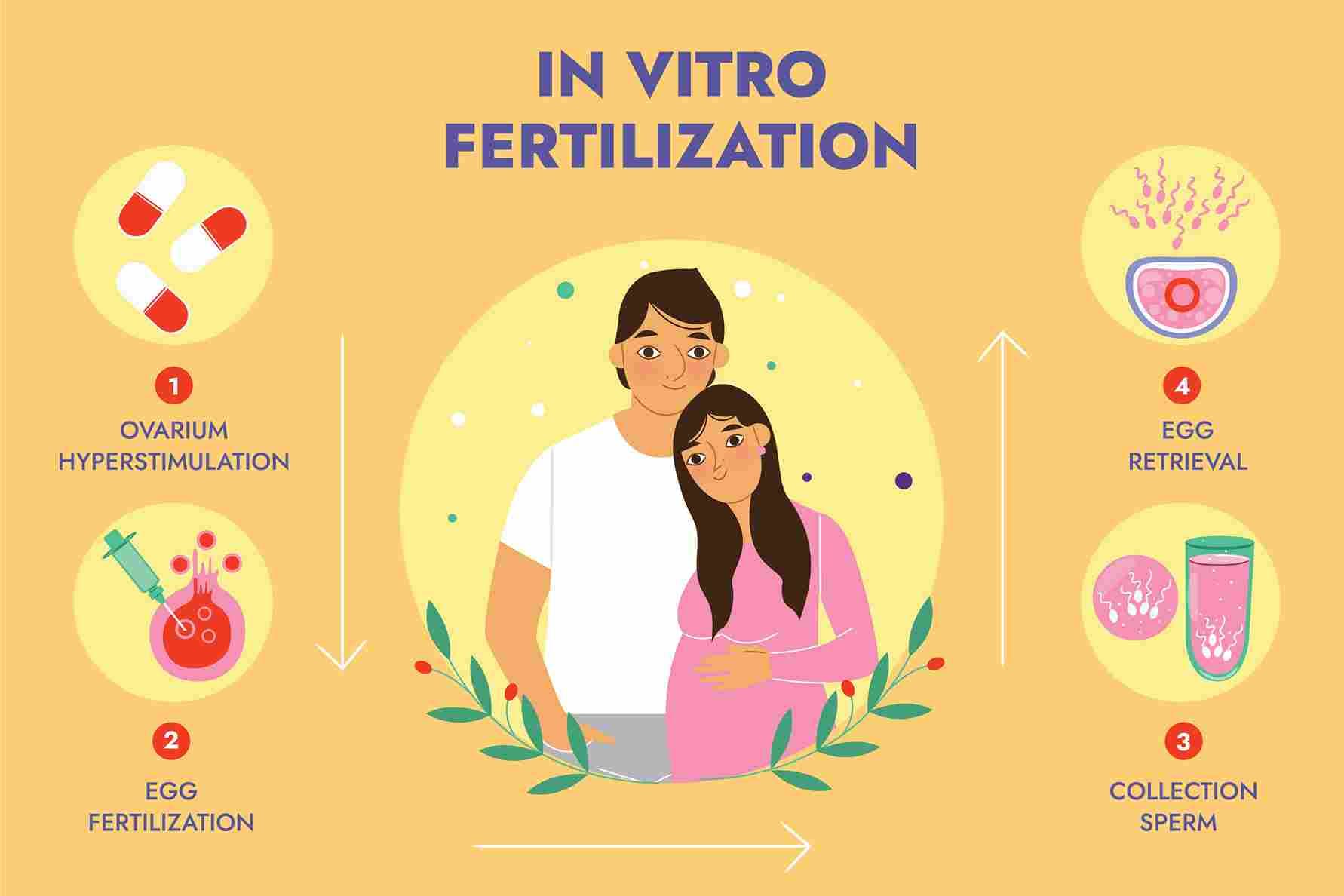IVF: Understanding the Process, Costs, and Success Rates

Medically Reviewed By
Dr. Ragiinii Sharma
Written By Kirti Saxena
on Mar 13, 2024
Last Edit Made By Kirti Saxena
on Mar 18, 2024

As per the "Call to Action" report by Ernst and Young, India witnesses 250000-300000 IVF treatments annually, which signifies the importance of ART technology. The industry is projected to grow 15-20% over the next five years. Infertility issues affect 15% of Indian couples, leading to roughly 28 million couples facing fertility issues. This number is expected to rise due to lifestyle factors like stress, obesity, and medical reasons.
Sub-fertility is a growing issue in India, affecting nearly 1 out of 6 couples. Unfortunately, less than 1 percent of affected couples seek medical treatment. This is due to a lack of awareness, access, and affordability.
IVF offers hope for couples struggling with infertility. However, ART procedures like IVF lead to higher success rates in India. Improved Assisted Reproductive Technologies (ART) like IVF lead to higher success rates. IVF helps more couples achieve their dream of having children. Let’s cover more about IVF, its role, procedure, success rates and more in depth.
What exactly does IVF mean?
IVF stands for In Vitro Fertilization. It's a helpful procedure to help people get pregnant when getting pregnant naturally is difficult. IVF (in vitro fertilization) is a type of fertility treatment where eggs are combined with sperm outside of your body in a lab. IVF involves many complex steps and is an effective form of ART. During the procedure, the IVF procedure takes eggs from the woman's ovaries and fertilizes them with sperm in a lab dish. After a few days, the embryo or fertilized edd is carefully placed back into the woman's uterus and is carefully placed back into the woman's uterus, where it can hopefully implant and lead to a pregnancy.
Who can Benefit from IVF?
IVF is a helpful procedure for couples for couples struggling with infertility for a variety of reasons. Here's how IVF can help-
- Bypasses Blockages
Couples with blocked fallopian tubes can prevent sperm from reaching the egg; IVF allows fertilization to happen outside the body in a lab dish.
- Improves Sperm Issues
If a man has low sperm count, weak motility (movement), or other sperm issues, IVF can help to concentrate healthy sperm and increase the chance of fertilization.
- Addresses Ovulation Problems
For women having fertility or hormonal issues affecting ovulation, IVF can stimulate the ovaries to produce mature eggs for fertilization.
- Helps with undefined Infertility
In some cases, infertility has no clear cause. IVF allows doctors to examine both eggs and sperm in a controlled setting, sometimes revealing underlying issues and offering a path forward.
- Genetic Screening (PGT)
Couples having a family history of a genetic disorders can take help from IVF procedures combined with preimplantation genetic testing (PGT). This allows doctors to screen embryos for specific genetic conditions before implantation, increasing the chances of a healthy pregnancy.
- Family Building Options
IVF opens doors for family building beyond traditional methods. Same-sex couples and single individuals can use donor sperm or egg donation with IVF to create a family.
Some other benefits of IVF
- Endometriosis.
- Polycystic ovary syndrome (PCOS) or other ovarian conditions.
- Uterine fibroids.
- Problems with your uterus.
How is IVF done? A Step-by-step procedure
IVF, or In Vitro Fertilization, is a multi-step process that can help people facing fertility issues achieve pregnancy. Here is how IVF is done-
- Stimulation and Monitoring
Multiple medicines are used to stimulate the ovaries to produce multiple mature eggs instead of the usual single egg released during a natural cycle. Frequent ultrasounds and blood tests are done to monitor egg development.
- Egg Retrieval
A minor surgical procedure is performed under sedation. A thin needle guided by ultrasound is inserted through the vagina to collect mature eggs from the ovaries.
- Sperm Collection
The male partner has to collect the sperm sample on the same day as egg retrieval.
- Fertilization
In a lab dish, the sperm and eggs are combined. In some cases, ICSI might be used where a single sperm will be injected into the egg to help fertilization.
- Embryo Development
The fertilized eggs (now called embryos) are carefully monitored for cell division and development over several days in a controlled laboratory environment.
- Embryo Selection
After a few days, one or more healthy embryos are chosen for transfer to the uterus. Sometimes, preimplantation genetic testing (PGT) might be performed to check for genetic abnormalities in the embryos before implantation.
- Embryo Transfer
A thin catheter is inserted through the cervix and into the uterus. The chosen healthy embryo(s) is transferred into the uterus.
- Pregnancy Test
After a two-week wait, a pregnancy test is done to see if the embryo has implanted and pregnancy has occurred.
What is the cost of IVF procedures in India?
The IVF cost in India depends on various factors like location, type of procedure, medications, number of cycles required, and may vary from centre to centre. The IVF cost range is ₹1,00,000 to ₹3,50,000 (around $1,200 to $4,200) per cycle. The actual cost of IVF may be influenced by-
- Location- The IVF cost may be higher in metro cities as compared to small towns.
- Clinic Reputation- The renowned clinic might charge more than smaller ones.
- Type of IVF procedure- Basic IVF may be less expensive than procedures using donor eggs, sperm, or PGT (genetic testing).
- Medications- Fertility medications may add ups and can increase the IVF cost.
- Number of cycles required- Unfortunately, IVF isn't always successful on the first try. If multiple cycles are required, the cost will increase.
There are multiple options available in the market for IVF treatment. You can choose the best IVF Centre in Delhi while keeping in mind your requirements and needs. Before finalizing any IVF clinic, consult a professional IVF specialist and understand the complete procedure.
What are the risks of IVF?
IVF increases the chances of multiple health problems. Let’s understand in detail-
- Stress- Sometimes, you might feel drained physically and financially. Get help from your doctor, family members, and friends during the procedure and its ups and downs.
- Several Medications- Many medicines can cause side effects like mood swings, headaches, and hot flashes.
- Ovarian Hyperstimulation Syndrome (OHSS)- Stimulation drugs used to produce multiple eggs can lead to OHSS, causing bloating, abdominal pain, and, in rare cases, serious complications.
- Risk of infection- There's a small risk of infection during egg retrieval or embryo transfer.
- Pelvic pain- Minor discomfort or cramping can occur after egg retrieval.
- Injury to organs- In rare cases, there's a slight risk of injury to nearby organs during egg retrieval.
- Risk of miscarriage- The chance of miscarriage is similar to natural conception.
- Multiple pregnancies- Transferring multiple embryos increases the risk of twins, triplets, or higher-order multiples, which can lead to complications for both mother and babies.
- Ectopic pregnancy- In rare cases, the embryo implants outside the uterus, which requires immediate medical attention.
What are the Success Rates of IVF?
The success rate of the IVF procedure depends on various factors, including-
- Age
- Duration of infertility
- Causes of infertility
- The endometrial development
- Sperm quality
- Ovarian reserve
- Numbers of embryo transfer
- Lifestyle factors
- Medical conditions
With respect to the above factors, the success rates of IVF range from 30% to 35% in India. The average IVF success rate is around 40% in young women. The chance of success rates also increases in women younger than 35 years of age.
Unlocking Parenthood: The Process and Promise of IVF
IVF can feel overwhelming at first, but with the right guidance from experts, the journey might seem easy.
The most important factor for the success of IVF is your age. While success rates play a role, focus on the emotional journey, too. There are ups and downs, so having a strong support system is key. If you're considering IVF, talk to your doctor. You can choose the best IVF Centre in Delhi on the basis of crucial factors, including awareness, accuracy, accessibility, and affordability. By focusing on these areas, the industry can empower many people struggling with infertility to achieve their dream of having children.
They can answer your questions and guide you through the next steps.



